Famous recipes it's actually illegal to change
Special status

Maria_OH/Shutterstock
Pizza, potatoes, cheese, sweets... Many of our favourite foods are protected by laws and regulations to prevent producers from changing the original method of making or growing them. We look at the recipes and ingredients that can't be tampered with – some of which might surprise you.
Florida orange juice, USA
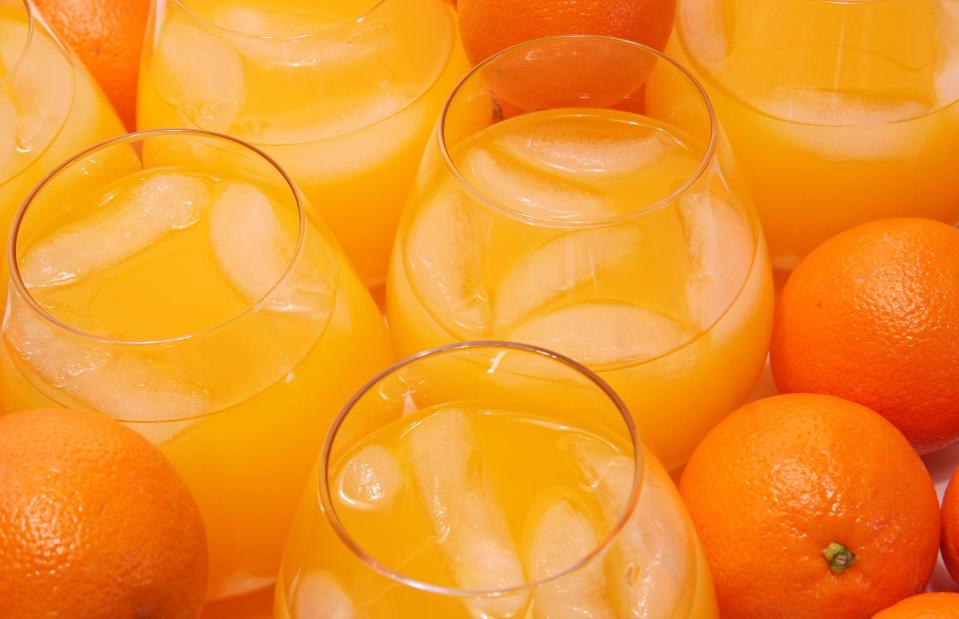
Hannamariah/Shutterstock
Next time you’re enjoying a glass of freshly squeezed OJ in the Sunshine State, say thanks to the Florida Department of Citrus for making sure that it really is 100% Floridian orange juice, which can legally only be made from mature Florida oranges grown by licenced citrus dealers.
Jersey Royals, UK
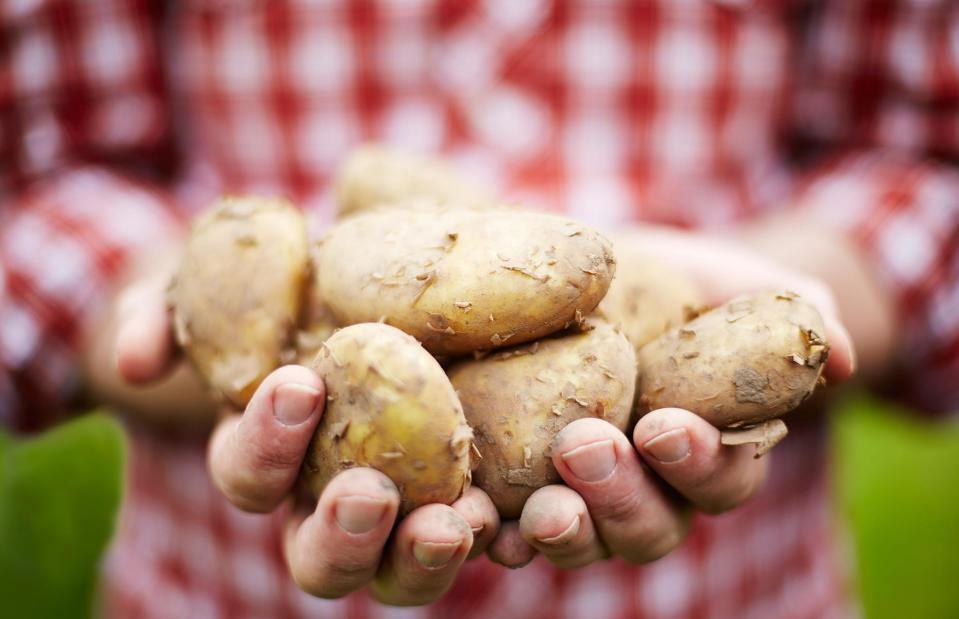
SpeedKingz/Shutterstock
The potato is not as humble as you might think. Grown on the island of Jersey for more than 140 years, Jersey Royals are considered the cream of the crop thanks to their nutty taste and firm texture. In 1996 they were awarded Protected Designation of Origin (PDO) status and can only be grown, cultivated and harvested on Jersey, where their unmatched flavour is thought to be influenced by the island’s unique soil and locally collected seaweed is often used as a fertiliser.
Champagne, France

IVASHstudio/Shutterstock
There are very few drinks as rigorously protected as Champagne. According to various trade agreements and treaties, European and international laws, and Comité Interprofessionnel du vin de Champagne regulations, Champagne can only be produced in Champagne, France, using the méthode champenoise. It means the last stage of fermentation occurs in the bottle. Funnily enough, Californian Champagne is perfectly legal. Even though the US signed the Treaty of Versailles, which included an article protecting French Champagne, it was never ratified by the Senate.
Vidalia onions, USA
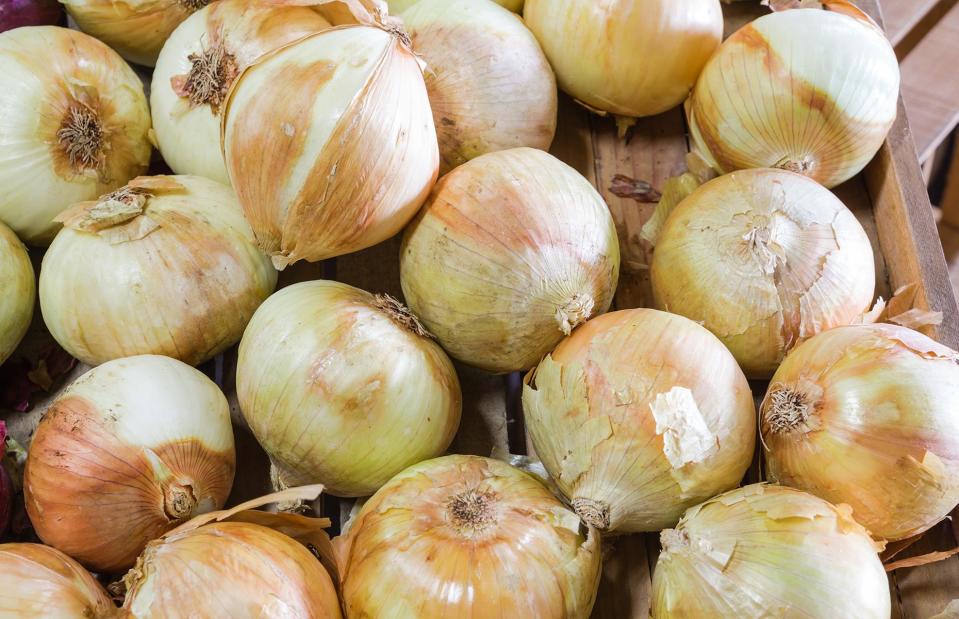
Trong Nguyen/Shutterstock
Thanks to onion farmers in Georgia, who sought to trademark the uniquely sweet flavour of Vidalia onions, they are now protected by both state and federal law. Grown exclusively in the Peach State, these onions are also Georgia’s official state vegetable.
Kalamata olives, Greece
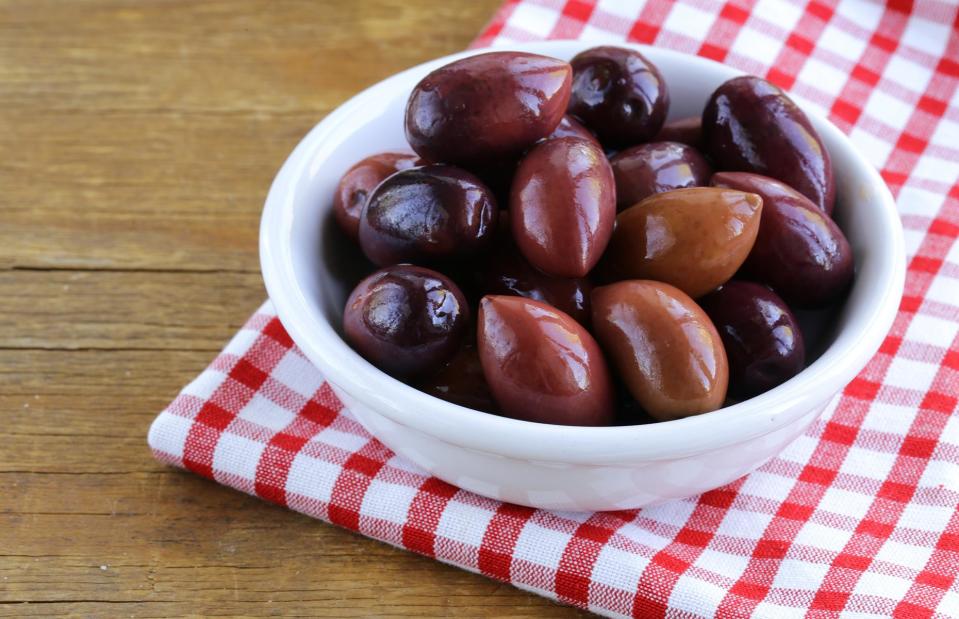
Dream79/Shutterstock
To gain Protected Designation of Origin (PDO) status, these meaty black olives can only be grown in or near Kalamata, a city in the Peloponnese, Greece. Similar olives grown elsewhere are usually sold as Kalamon olives. However, in early 2018 Greek officials announced that Kalamata olives would be added to the national list of plant varieties of Greece, which means they can be grown anywhere in the country. This will result in two products – Kalamata olives PDO and Kalamata olives.
Tequila, Mexico
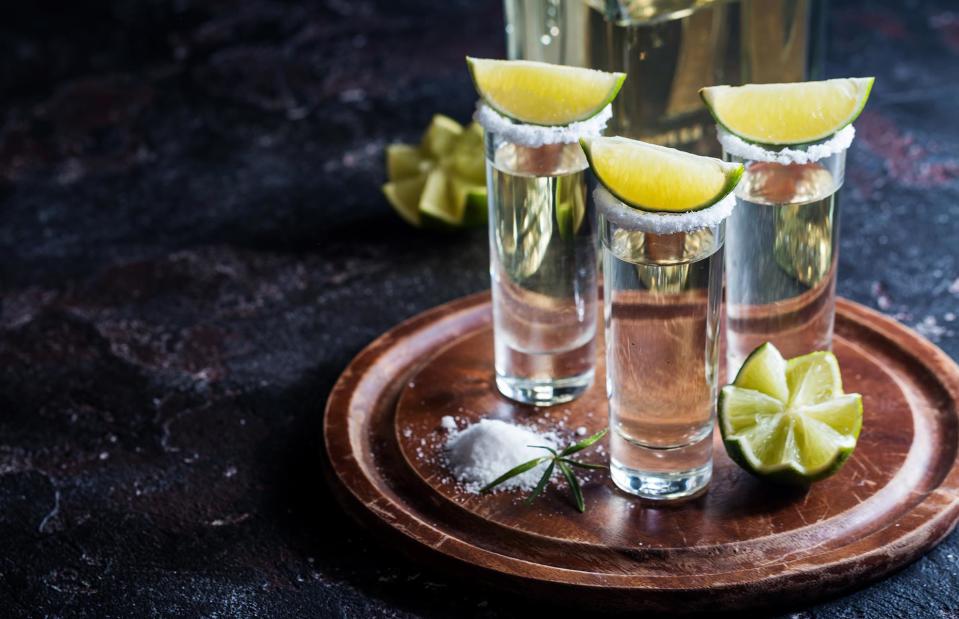
Goskova Tatiana/Shutterstock
The name tequila carries legal weight in many countries around the world, including the USA and Canada. Almost all tequila produced in Mexico is distilled in the state of Jalisco. According to legal requirements, it has to be made from 51% blue agave with an alcohol content between 31 and 55%, while in America it has to be above 40%.
Buffalo mozzarella, Italy
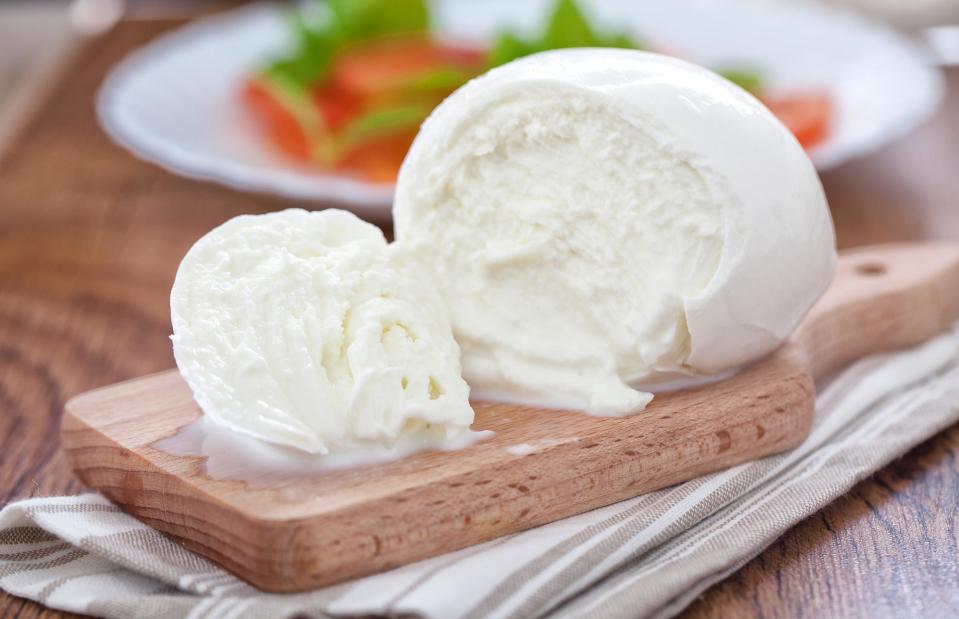
svariophoto/Shutterstock
One of the most controversial products on this list, buffalo mozzarella or, more specifically, mozzarella di bufala, has PDO protection in Europe – yet the same name can be used without restriction in the US. Authentic Italian buffalo mozzarella can be produced only in select locations in certain regions, including Campania.
Clotted cream, UK

Maria_OH/Shutterstock
Rich and indulgent, clotted cream is an essential for a British afternoon tea. While there’s long been rivalry between Cornwall and Devon as to which county is the birthplace of clotted cream, it was actually only in 1998 when Cornish clotted cream became protected under European law. As long as the milk used to make the cream has been produced in Cornwall and has at least 55% fat content, it can be labelled as Cornish clotted cream.
Port wine, Portugal
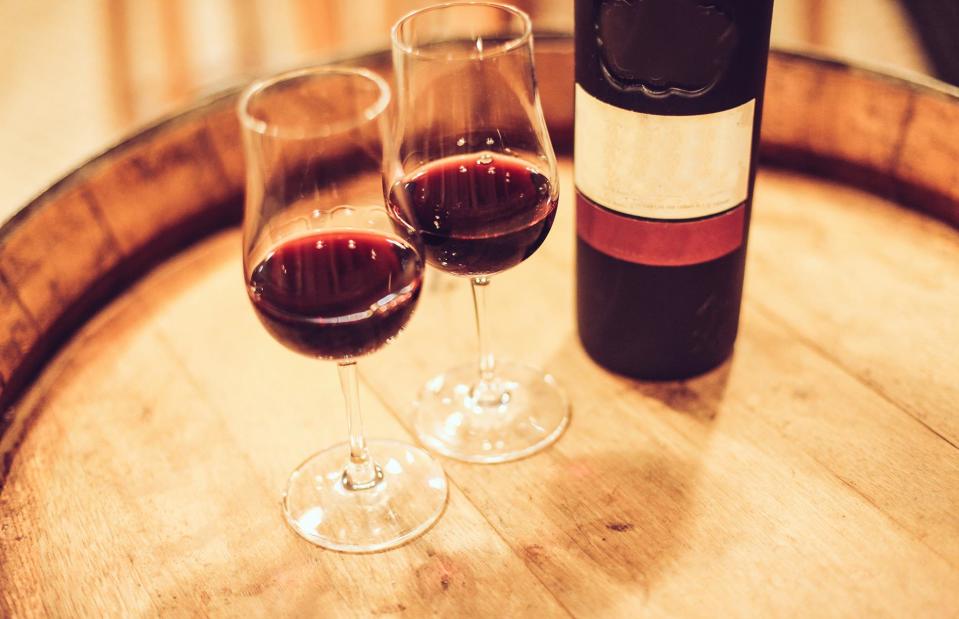
dabyki.nadya/Shutterstock
The laws surrounding this fortified wine are very similar to those governing Champagne. According to PDO guidelines, in the European Union Port can only be produced in the Douro Valley in Portugal. However, the PDO product is actually called vinho do Porto or porto, not Port as it’s more commonly known.
Darjeeling tea, India
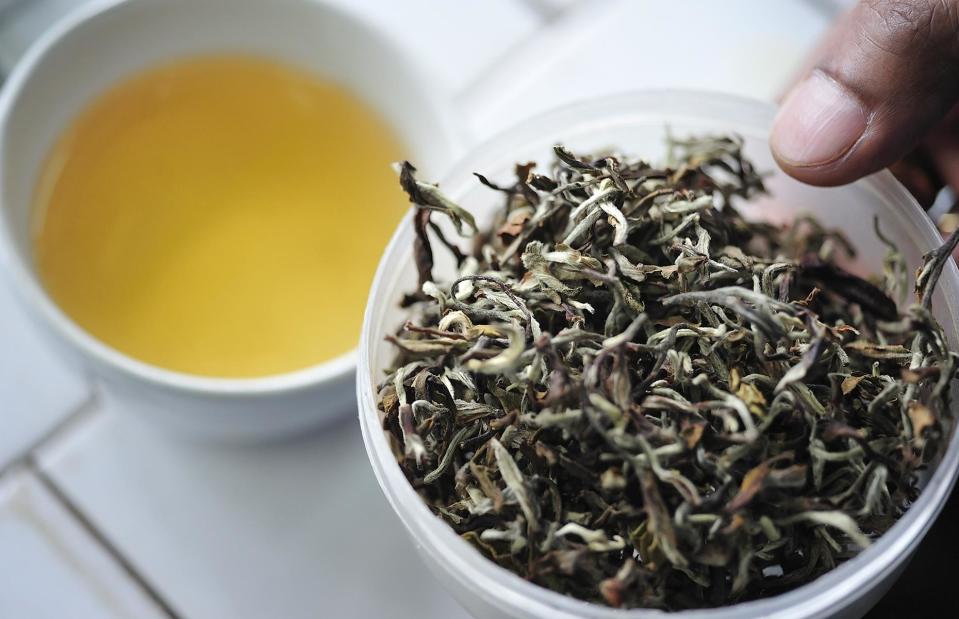
T photography/Shutterstock
The first Indian product to receive protected status, Darjeeling tea is often called the Champagne of teas. It’s grown in 87 gardens in the foothills of the Himalayas, where some of the bushes are more than 150 years old. According to the Tea Board of India, this tea can’t be grown, harvested or produced anywhere else in the world.
Kobe beef, Japan
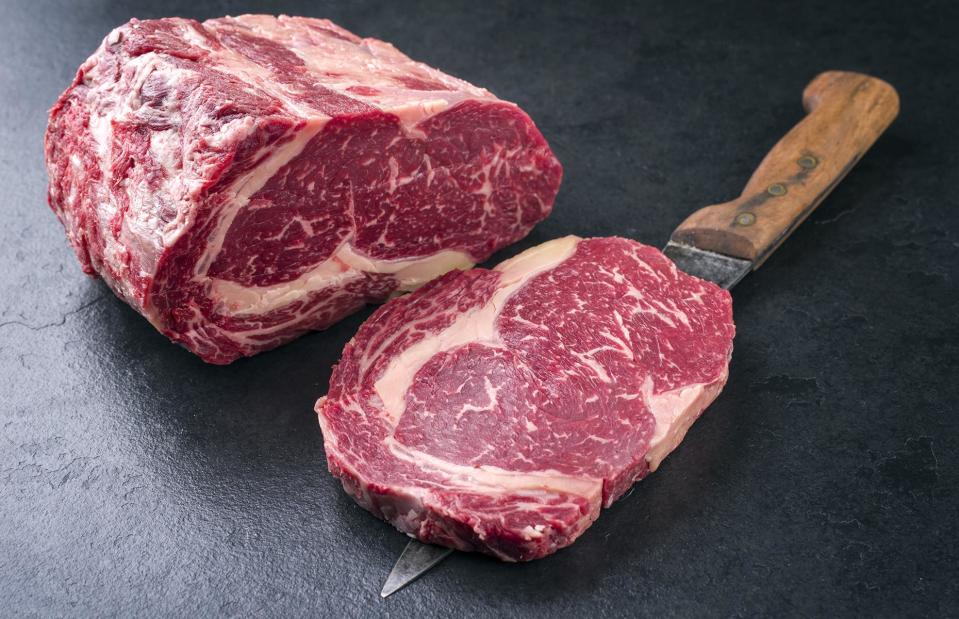
hlphoto/Shutterstock
In Japan, Kobe beef is a registered trademark and can be labelled as such only if it meets a series of conditions, including the marbling ratio and gross weight of the animal. Cattle must also be born and bred in Hyōgo Prefecture. While exports of Kobe beef began in 2012, much of the beef sold outside Japan is still mislabelled.
Kalix löjrom, Sweden
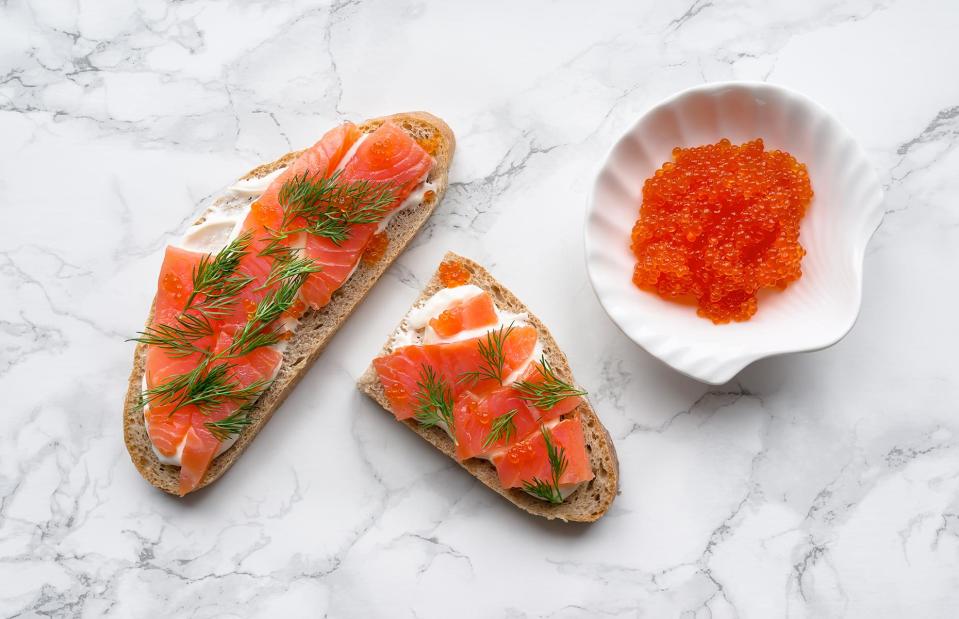
MasterQ/Shutterstock
This Swedish delicacy – the roe of a small salmon-like fish called vendace – is perhaps one of the most specific PDO products in Europe. The roe must be harvested from the Bothnian Bay in the Baltic Sea, with the harvest only lasting from late September to late October. It’s served at royal dinners and Nobel Prize banquets, among other occasions.
Caipirinha, Brazil
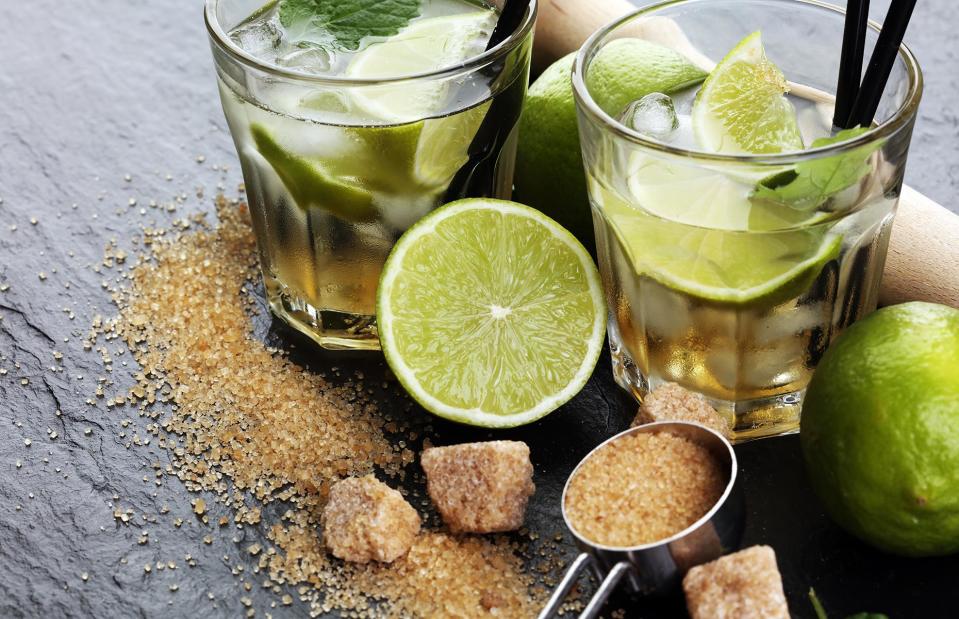
beats1/Shutterstock
Brazil’s national drink is a popular cocktail around the world, but it can only be sold as a caipirinha if it’s made using the original recipe – as decreed by both Brazilian state law and the International Bartenders Association. Authentic caipirinhas are made with half a lime cut into four wedges, 2tsp of sugar and 50ml (1.8 fl oz) of cachaça, (a fermented Brazilian spirit). And it's always served on the rocks.
Kölsch, Germany
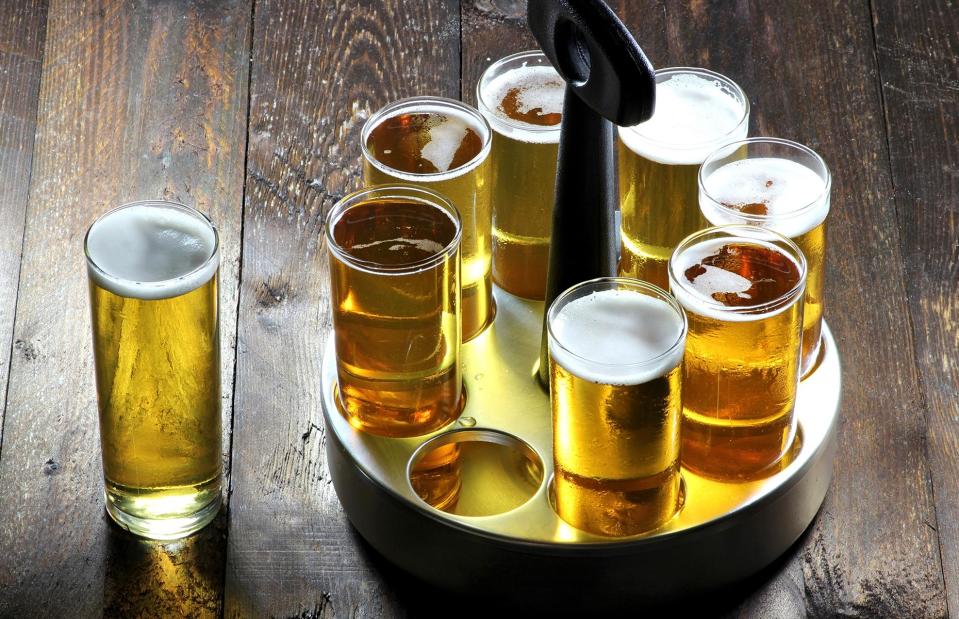
Bjoern Wylezich/Shutterstock
Brewed only in the greater area of Cologne, Kölsch has been a Protected Geographical Indication (PGI) product since 1997. The Cologne Brewery Association, also known as the Kölsch Konvention, ensure that Kölsch is brewed according to a particular recipe. While there are many breweries outside of Germany who produce a similar style of beer, it’s usually referred to as Kölsch-style, American Kölsch or Kolsch without the umlaut.
Rooibos tea, South Africa
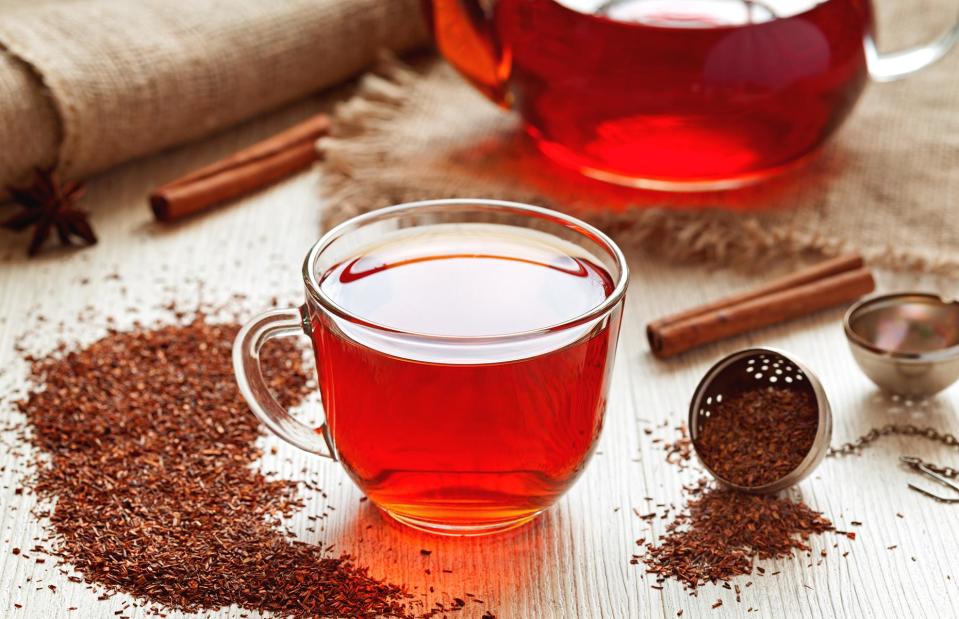
GreenArt/Shutterstock
In 2016, rooibos tea from South Africa gained Protected Geographical Indication (PGI) status in the EU after a French company tried to trademark the famous red bush tea. In return, 251 foods and spirits protected in the EU received the same legal safeguards in South Africa. The South African Department of Trade and Industry also restricts using variations of the name like rooboistee and rooibosch.
Lardo, Italy
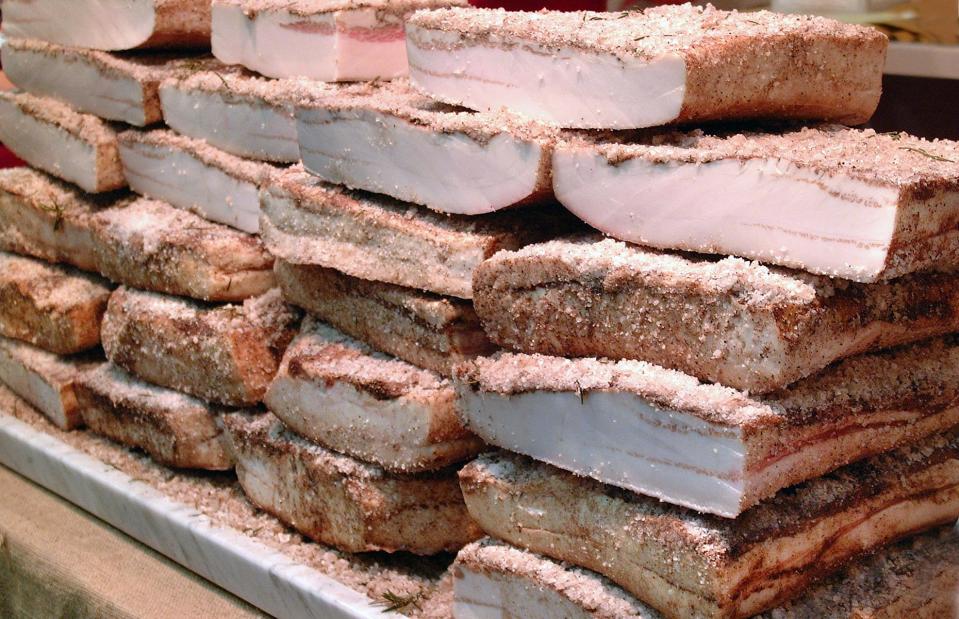
Luigi Bertello/Shutterstock
If you haven’t tried lardo before, it seems unlikely that a piece of pork fat would be protected by law. But this thick layer of fat from a pig’s back, cured in a specific mix of salt, herbs and spices, has quite a history. The most famous lardo has been made in Tuscany since Roman times, while that made in the Vallée d’Aoste is still cured according to a centuries-old recipe including nutmeg, sage and juniper.
Neapolitan pizza, Italy
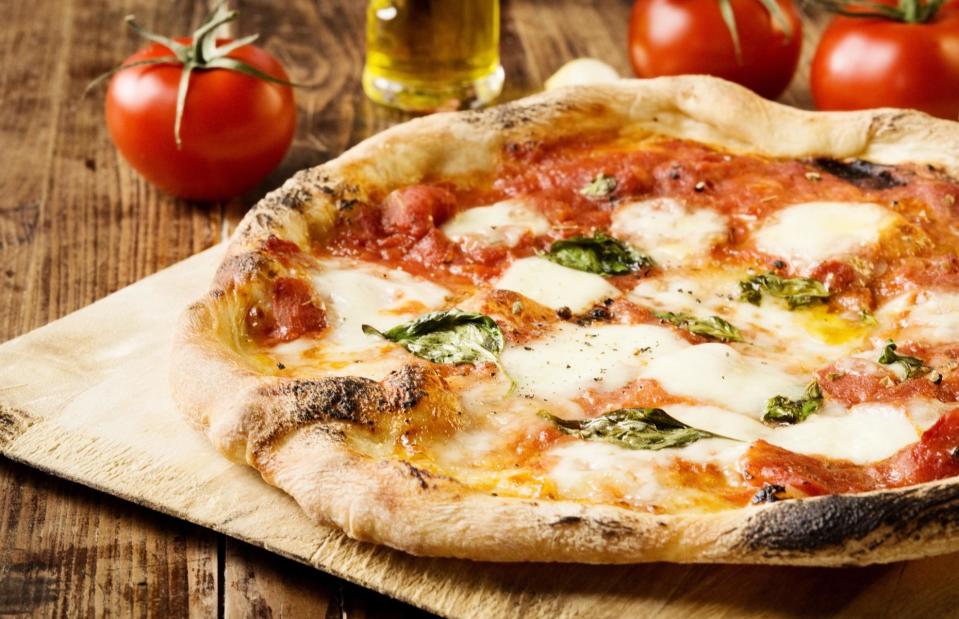
V. Matthiesen/Shutterstock
Do you know what sets an authentic Neapolitan pizza apart from the rest? According to the international regulations of Associazione Verace Pizza Napoletana, it has to be round-ish, with a raised crust (cornicione) and burn-free. The pizza dough has to be made only from type 00 or type 0 flour and it must be prepared by hand. Toppings must only come from the Campania region: extra virgin olive oil and either buffalo mozzarella or fior di latte cheese.
French cheeses
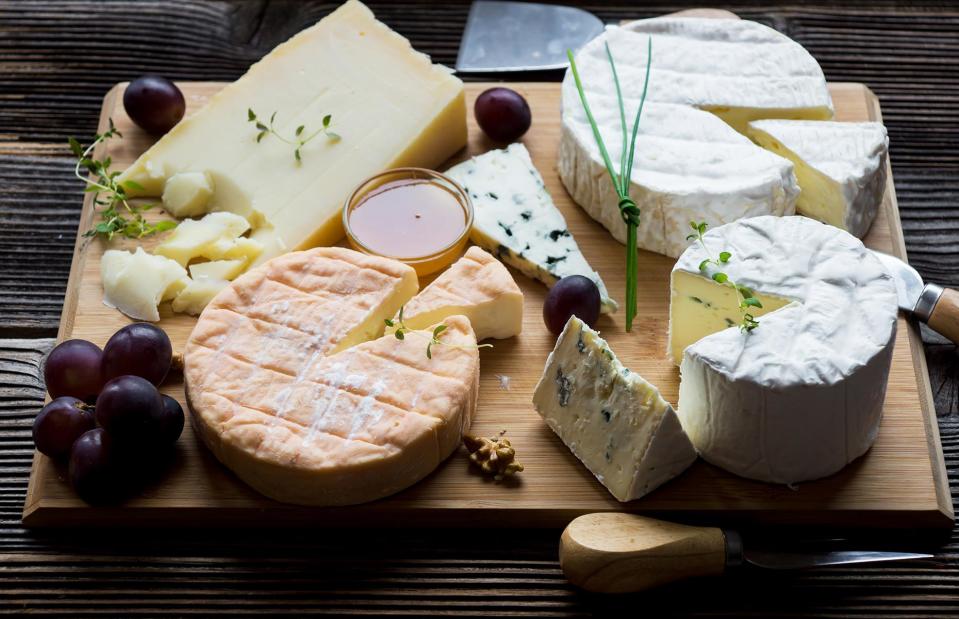
Dani Vincek/Shutterstock
Beaufort, Brie, Camembert, Roquefort, reblochon and Comté are just a handful of French cheeses that have been awarded PDO status. They’re also protected under the French AOC – appellation d'origine contrôlée – system, used to certify the quality and authenticity of everything from wines and spirits to oils and cheeses.
Lübeck marzipan, Germany
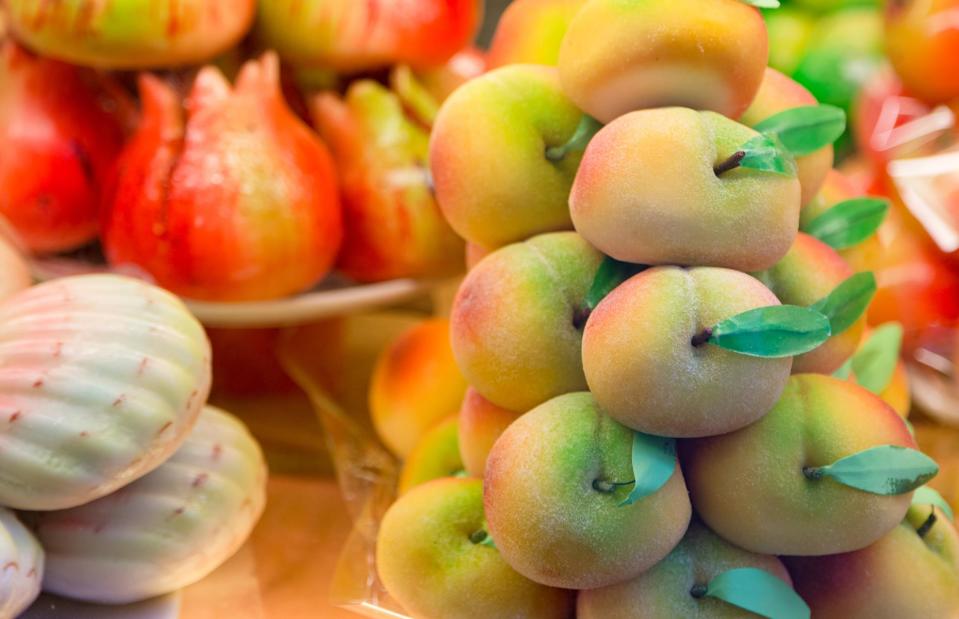
DimaSid/Shutterstock
Controlled under EU law as a Protected Geographical Indication (PGI) food since 1996, Lübeck marzipan, also known as Lübecker marzipan in German, can only be made in the German city of Lübeck. Even though the directive doesn't set out any principles when it comes to making marzipan, many manufacturers in Lübeck follow certain principles of quality such as a high almond content and low amounts of added sugar.
Jamón Ibérico, Spain
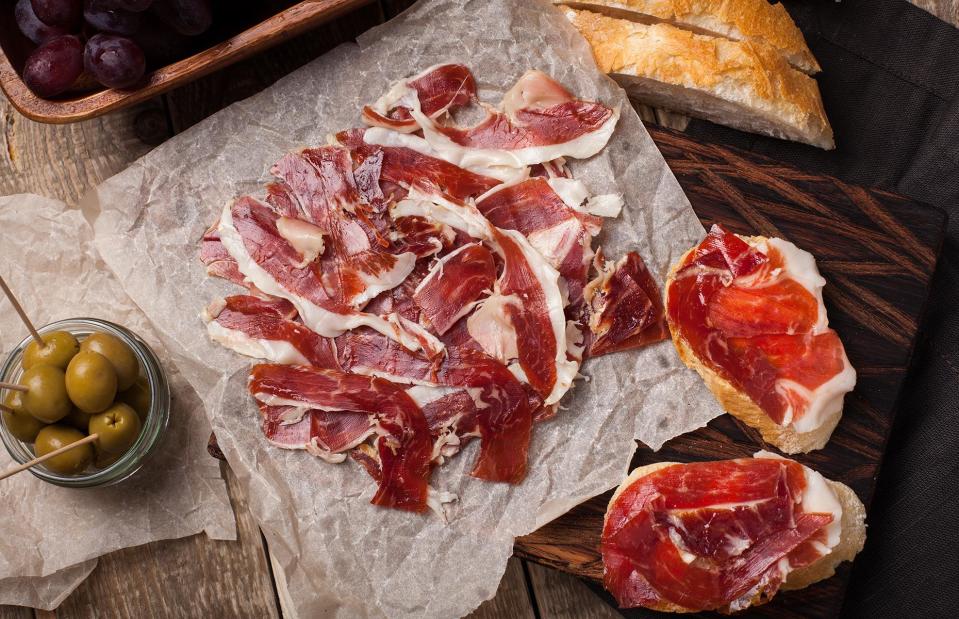
VasiliyBudarin/Shutterstock
This famous Spanish charcuterie is protected for its very particular production process. The ham is available in three different grades with Jamón Ibérico de Bellota the most sought-after, made from pure-bred Iberian pigs fed with acorns. There are also four different PDO variations, depending on where it’s produced. In America, it wasn’t until late 2007 that Iberico ham was released for sale and it’s now one of the most expensive hams on the market.


